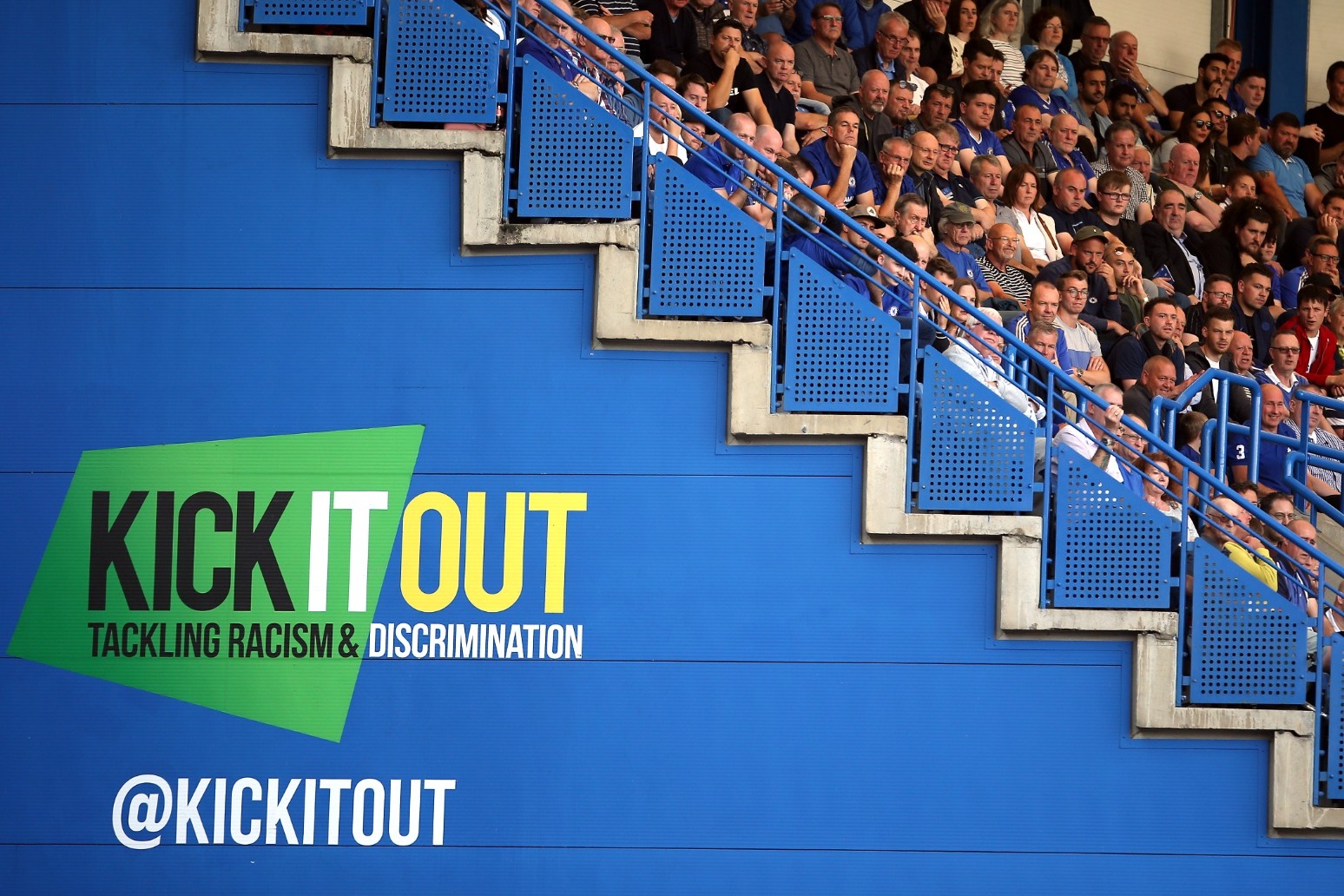This website uses cookies so that we can provide you with the best user experience possible. Cookie information is stored in your browser and performs functions such as recognising you when you return to our website and helping our team to understand which sections of the website you find most interesting and useful.
Sexism and misogyny still on rise in English football data shows
24/07/2024

Sexism and misogyny continue to be on the rise in English football, according to new data published by Kick It Out.
Reports of that type of discrimination rose by a further 44 per cent from 80 in 2022-23 to 115 last season, having shot up by over 400 per cent from 2021-22 to 2022-23.
The new data comes in the week when former player Joey Barton revealed he had been charged with malicious communication in relation to social media posts he directed towards ITV pundit Eni Aluko in January.
In one post on X after Aluko had been working on a men’s FA Cup tie between Crystal Palace and Everton, Barton questioned why Aluko was even talking about men’s football and described her and another female pundit, Lucy Ward, as “the Fred and Rose West of football commentary”.
Aluko, who played for Chelsea and England, scoring 33 international goals in 102 games before retiring in 2020 and establishing a broadcasting career, said Barton’s online activities had left her fearing for her safety and frightened to leave home.
In an Instagram post she said: “If you come out and are racist, or sexist or misogynistic and threaten people online, there are laws for that, that govern that behaviour, so it’s not free (speech),” she said.
“There are consequences for that.”
Analysis of the language used in the reports of sexist and misogynistic abuse at football and online found almost two thirds (64 per cent) questioned the place of women in the men’s game, with 60 per cent of reports targeting current or former players. Twenty one per cent of the reports contained sexually degrading language and insults.
Altogether Kick It Out received 1,332 reports of discrimination last season – the highest figure it has ever recorded.
The figures incorporate reports from across the professional game, grassroots, and social media, and represent a 32 per cent increase on 2022-23 and more than double the 601 reports in the 2021-22 campaign.
The reports per incident rate was also the highest on record – 1.51 compared to 1.38 in 2022-23 – which the charity was encouraged by. It believes that suggests fans are becoming less tolerant of discriminatory abuse.
There was a 47 per cent rise in reports of racism, from 496 in 2022-23 to 731 last season, while faith-based abuse increased by 34 per cent with sharp rises in reports of anti-Semitic and Islamophobic abuse (63 and 138 per cent respectively).
Abuse expressly targeting players soared by 43 per cent, with 55 per cent of that player-targeted abuse aimed at players from an East Asian background.
There were 395 reports of player-targeted abuse last season, compared to 277 in 2022-23.
Kick It Out chair Sanjay Bhandari said: “These figures underline the seriousness of football’s discrimination problem, with reports to Kick It Out more than doubling over the past two seasons.
“It’s deeply concerning to see how steeply reports are rising. However, we believe this increase can also be attributed to fans becoming less tolerant of discrimination and greater awareness of reporting procedures.
“Encouragingly, we are seeing stronger punishments for racist abuse in recent years, including the toughest ever handed out to a football fan found guilty of racist abuse at a football match earlier this season.
“However, we now need to see better co-ordination from football authorities and stakeholders to ensure there are positive outcomes for victims of abuse across the game, particularly on social media where too much discriminatory abuse still goes unchallenged.”
Kick It Out delivered a record 117 one-to-one restorative fan education sessions last season and provides academy education to over 2,000 players, coaches, and staff from across 42 different clubs.
Published: by Radio NewsHub



